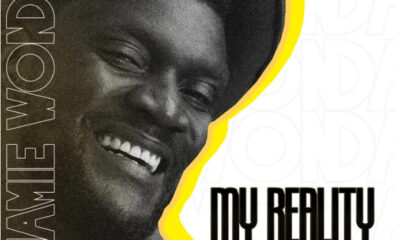The President of the Christian Association of Nigeria (CAN), Pastor Ayo Oritsejafor, said yesterday that the planned amnesty for members of the Islamist sect, Boko Haram, by the Federal Government amounts to an act of wickedness.
He wondered how government could be talking of amnesty for the fundamentalists without any thought for the welfare of victims of their insurgency.
But the Northern States Governors Forum (NSGF) is in full support of the planned amnesty and wants the committee set up by the Federal Government to work out the modalities expanded to include ‘critical stakeholders.’
Speaking as a special guest at the 80th birthday of the President, Apostolic Church of Nigeria, Pastor Gabriel Olutola, in Lagos, yesterday, Pastor Oritsejafor advised the federal government to first consider the welfare of victims of Boko Haram insurgence and ensure that Boko Haram embraces peace before considering amnesty for it.
The CAN president faulted the circumstance surrounding the setting up of the amnesty committee.
He said: “I don’t know if the president has actually set up a committee. It is still a rumour to me. But if he has, I think that is a bit dangerous because some of us are stakeholders. I think it is important to consult with all those who ought to know so that they can share their own opinion and also be able to speak on what amnesty is all about.”
He also spoke on the much speculated second term ambition of President Jonathan.
He said: “Well, I don’t know about his (Jonathan) second term ambition because I am not a politician. I am a pastor. But that would be wicked. I don’t see why he would have to consider that, because we are facing a very serious situation in Nigeria.
“I don’t see why he would have to do that (grant amnesty). Let us not turn this situation into politics. Let’s face it for what it is. The security of the people is the number one responsibility of the president. And I think at this point, Jonathan must wake up and just face it and do what he has to do. But these people who are putting pressure on him left and right, may God help them and deliver Nigeria from their hands.”
Stressing that CAN is not in any way opposed to amnesty, Oritsejafor, stressed: “When you talk of amnesty, you are also talking about forgiveness. But if you read Luke 15, the Bible is talking about the prodigal son and in verses 17 and 18, the Bible says, ‘when he came to himself.’ In other words, he realised that what he had done was wrong.
“But the people we are dealing with, do they accept that what they are doing is wrong? When he (the prodigal son realised it, then he came to his father to ask for forgiveness.”
Reacting to a call by former First Lady, Turai Yar’Adua, that President Jonathan should extend the same gesture her late husband granted the Niger Delta militants, Oritsejafor said, “Comments like this show that those who hold those views either don’t know or pretend not to know what is really happening. If they don’t know, they should meet those who know.”
Oritsejafor said it was wrong to draw a parallel between the Niger Delta and the Boko Haram situations. The Niger Delta militants, he explained, were identified by leaders of the area and agreed to lay down their arms within the period specified by the government before they were offered amnesty.
“The leaders in the North, instead of talking and talking, they should go and identify these (Boko Haram) boys. Jonathan cannot do that. He doesn’t know where to go. That is why he must be careful the way he gets involved with some of these agitators,” he said.
Going down the memory lane on how the Niger Delta militants were appeased, Oritsejafor said, “Amnesty did not just happen. What happened was that the leaders from the Niger Delta were able to identify the leaders of these militant groups. Yar’ Adua did not identify them. The leaders in the area identified them and brought them to Yar’ Adua and said ‘these are the boys.’
“Jonathan himself was given the marching orders by Yar’ Adua. He came to the Niger Delta. Incidentally, I’m from that area-and some of us took him to the creeks. I went personally. He went with these boys, he talked with them. Yar’Adua now said, ‘you have three months to drop your arms. If you drop your arms, then we would start discussing amnesty or any other issue. But if you don’t, you will all be killed.’
“People like Chief Edwin Clark and several others went into the creeks, discussed with the boys, convinced them and within the three months grace, most of them dropped their arms. That was what gradually gave birth to amnesty. So, what are we talking about now? That a committee would just come out and say ‘now there is amnesty.’ I don’t think that is what Jonathan wants. I would be surprised if that is what some of these Northern leaders themselves want.
“I think we should be concerned about the victims. How are we going to take care of them? How are we going to compensate the people they left behind? What about the churches that have been burnt? There are so many unanswered questions that I am wondering why we are putting the cart before the horse.”
The CAN leader also urged the government to intervene in the spate of attacks by Fulani herdsmen on several communities in the country.
His words: “What we hear today about Fulani herdsmen is a very dangerous trend. Government and security agencies should look into it. Is there a connection between them and Boko Haram? The Fulani herdsmen we used to know went about with their sticks and guarded their herds.
“But today, they are killing and maiming in places like Kaduna, Plateau, Ogun, Oyo, Cross River, Delta, Benue, Nasarawa and even inside Abuja. And now they are carrying AK47. Who are these people? Leaders of the Fulani community should look into this. Government should help us with these issues.”
The Northern governors in expressing support for the planned amnesty yesterday said President Jonathan was on the right path.
The Chairman of the forum and Governor of Niger State, Dr Mu’azu Babangida Aliyu, in a statement through his Chief Press Secretary, Mr. Danladi Ndayebo said the move “underscores the resolve of the Peoples Democratic Party (PDP) led government to restore peace in the region.”
He said a peaceful atmosphere would reinvigorate the region’s development.
It said: “The Northern States Governors Forum (NSGF) encourages President Jonathan in his effort to find a lasting solution to the Boko Haram crisis, with the hope that members of the sect would make themselves available for dialogue.
“The Forum calls for the expansion of the committee’s membership to include critical stakeholders in the region whose input would facilitate quick resolution of the crisis.
“State Governors, traditional rulers, the clergy – Christian and Islamic – academics, retired military men, businessmen and former public officers should form part of the current effort at fashioning out strategies to address the disturbing state of insecurity and to proffer practical and enduring solutions to the insecurity in the region.”
Recalling that the NSGF had, last year, inaugurated a 41-man peace committee headed by former Director General of the NIA, Ambassador Zakari Ibrahim whose membership cuts across people with diverse backgrounds, it said:”Although the committee is yet to submit report of its findings, its interface with some stakeholders in the troubled states in the North East is responsible for the progress so far made.”
The governors spoke as Northern elders called for the establishment of a permanent amnesty commission to address the issue of pardon for deserving people from time to time.
They have already sent their proposal to President Goodluck Jonathan, in black and white, according to a former Vice Chancellor of Ahmadu Bello University, Zaria, Prof Ango Abdullahi.
The commission will be different from the committee constituted last week by President Goodluck Jonathan last week to work out modalities for granting amnesty to members of the Islamist sect, Boko Haram.
Professor Abdullahi told the Hausa service of the British Broadcasting Corporation (BBC) monitored in Kaduna that the proposed commission, expected to be backed by law, would be operating independent of government.
He said: “We went with this advice in writing. Our thinking was that if the government felt it would be granting amnesty just like that, then there should be an independent body whose responsibility will be to set up how this amnesty will be granted, and also those affected will not be afraid to come out.
“We suggested the establishment of an amnesty commission. A commission is different from a committee but I hope it is a step that will lead to the commission.
“If a commission is established by law, it is independent and with honest individuals appointed to lead it, they will set up the process through which the desired objectives would be achieved.”
Reporting for NaijaGospel











